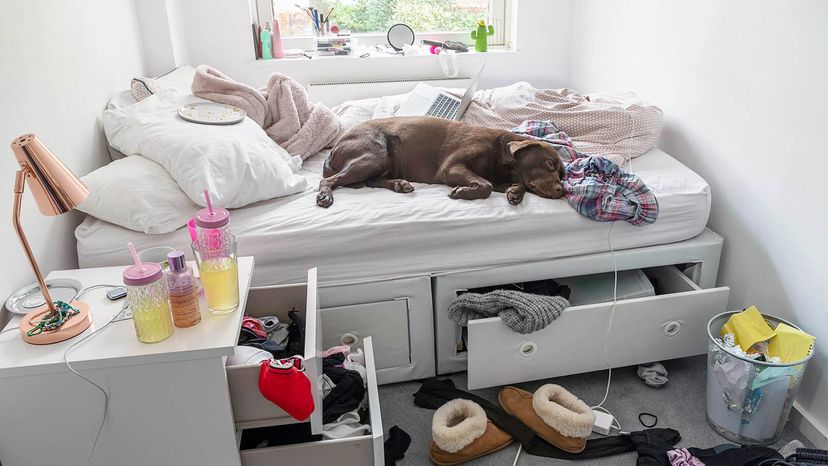
Everybody’s house smells in some way. There are the temporary smells of bread in the oven, or a fresh bouquet of flowers … or dog farts. But there’s also that particular way that your house just … smells.
You almost never even notice the way your own place smells. You notice the way everyone else’s place smells as soon as you walk in. There are their cats, and their laundry soap, and the new carpet they just got. And those all add up to the way their house smells.
But you can only smell your own house after you’ve been away for a while — like, a long while. Not just a workday, but like a week.
Sensory Adaptation
It has to do with sensory adaptation. That’s the scientific way to say that you just get used to it. And it’s more pronounced for our sense of smell than for any other sense, like our hearing, for instance. Researcher Pamela Dalton at the Monell Chemical Senses Center has done a lot of work on sensory adaptation. She and her team say that adaptation means you respond less when a stimulus is repeated. So when you’re at home, the smell of your house is all around you. It never goes away. It’s not just repeated — you’re swimming in it. So you become adapted to the way it smells.
The thing with smell, though, is that you adapt to odors really quickly. After "even a few breaths" of a smell, Dalton says, you begin to acclimate to it. You start to experience that smell as being less intense and eventually take no note of it at all. That’s why you can smell your friend’s house when you walk in, but you don’t really notice it the entire time you’re there.
Being able to detect smells is important. It might signal danger, like an approaching tiger or a poison in your goblet. Or it might signal something pleasant, like that fresh bread or that bouquet of flowers. Once you’ve decided against drinking the poisoned wine or eaten the delicious bread, you don’t need that signal communicating urgently with your brain anymore. Instead, your nose can stay on the lookout (smellout?) for new smells that are dangerous or delicious.
How to Freshen Up Your House
There’s an entire industry devoted to making your house smell better. But before you walk down that scented path, make sure the stinky problem isn’t truly bad. Old houses in particular can have issues such as:
- Mold and mildew
- Old pet urine soaked in the floors
- Something that died in the walls or crawlspace
- Dirty ductwork
It might be a simple housekeeping issue, like a dishwasher that needs to be cleaned or mildewing towels in the bathroom. Then, if you still want to change the way your house smells, there are a million candles, incense sticks and oil diffusers that might do the trick.
Now That’s Crazy
It turns out that "old-people smell" is real. It’s called nonenal, which is the scent of fatty acids on the skin being oxidized and gets stronger with age. Nonenal isn’t water-soluble, so it lingers on fabrics like upholstery. It’s not harmful; it’s just another one of the things to look forward to as we get older.